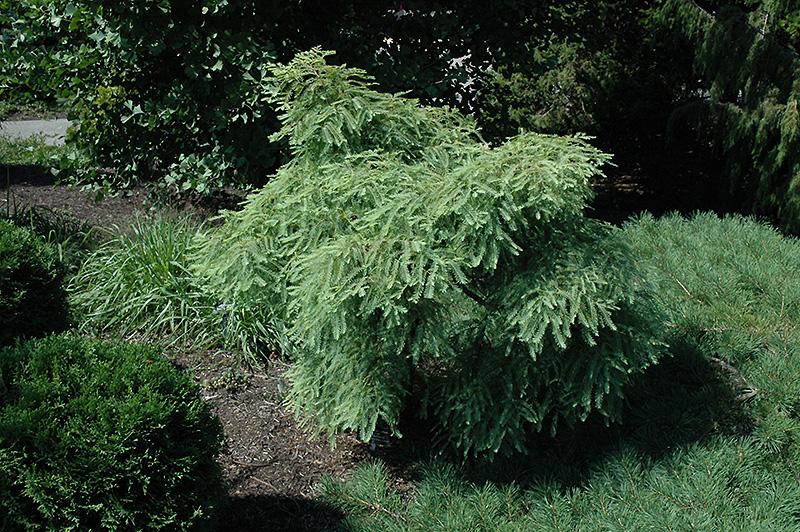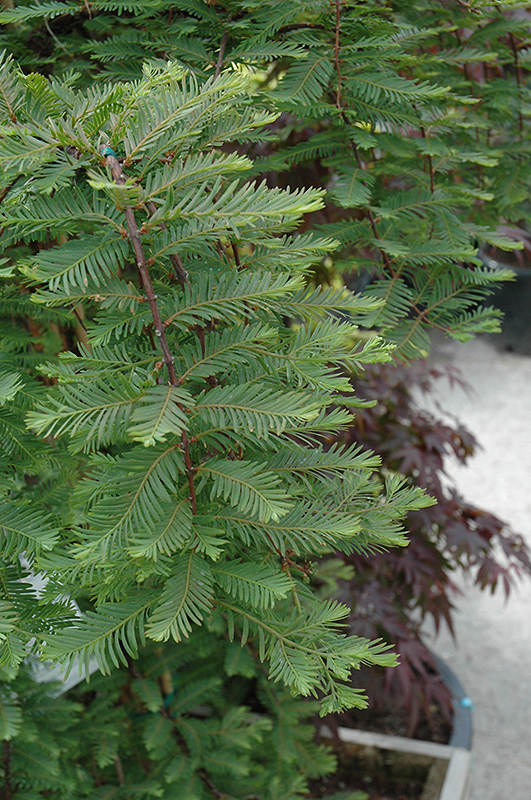Miss Grace Dawn Redwood
Metasequoia glyptostroboides 'Miss Grace'
Height: 10 feet
Spread: 3 feet
Sunlight:
![]()
Hardiness Zone: 4b
Description:
A small deciduous conifer with gracefully weeping branches and airy green foliage that changes to an intense orange in the fall; variety can reach 10 feet tall and 3 feet wide if staked; prefers sun and moist soils
Ornamental Features
Miss Grace Dawn Redwood is primarily valued in the landscape or garden for its highly ornamental weeping form. It has grayish green deciduous foliage. The ferny bipinnately compound leaves turn an outstanding orange in the fall. The peeling antique red bark adds an interesting dimension to the landscape.
Landscape Attributes
Miss Grace Dawn Redwood is an open multi-stemmed deciduous shrub with a rounded form and gracefully weeping branches. It lends an extremely fine and delicate texture to the landscape composition which can make it a great accent feature on this basis alone.
This is a relatively low maintenance shrub, and is best pruned in late winter once the threat of extreme cold has passed. Deer don't particularly care for this plant and will usually leave it alone in favor of tastier treats. It has no significant negative characteristics.
Miss Grace Dawn Redwood is recommended for the following landscape applications;
- Accent
- General Garden Use
Planting & Growing
Miss Grace Dawn Redwood will grow to be about 10 feet tall at maturity, with a spread of 3 feet. It has a low canopy with a typical clearance of 1 foot from the ground, and is suitable for planting under power lines. It grows at a fast rate, and under ideal conditions can be expected to live for 50 years or more.
This shrub should only be grown in full sunlight. It is quite adaptable, prefering to grow in average to wet conditions, and will even tolerate some standing water. It is not particular as to soil type or pH. It is somewhat tolerant of urban pollution. Consider applying a thick mulch around the root zone in winter to protect it in exposed locations or colder microclimates. This is a selected variety of a species not originally from North America.





